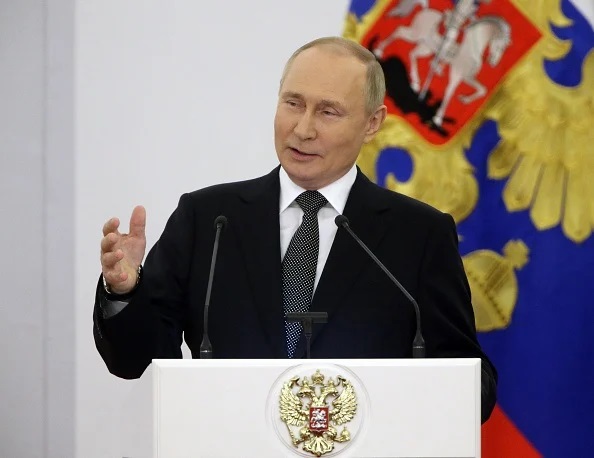
-
EUROPE
-
TIKTOK BLOCKS SEARCHES FOR 'SKINNYTOK' HASHTAG
Photo Credit: Getty Images TikTok has blocked users from searching for the hashtag "skinnytok,"...
-
KAROL NAWROCKI WINS POLISH PRESIDENTIAL RACE
Photo Credit: Getty Images Poland has entered a new political chapter. Karol Nawrocki, a...
-
UKRAINE BOMBS RUSSIAN AIRBASES IN MASSIVE DRONE STRIKE, DESTROYS OVER 40 WARPLANES
Photo Credit: Getty Images On June 1, 2025, Ukraine's Security Service (SBU) executed a daring,...
-
SALE OF BROWN BEAR MEAT APPROVED IN SLOVAKIA
Photo Credit: Getty Images Slovakia’s government has approved plans to sell meat from brown bears, a...
-
FARMHOUSE AT PRINCESS DIANA'S CHILDHOOD HOME DESTROYED IN SUSPECTED ARSON ATTACK
Photo Credit: Getty A farmhouse on the Althorp Estate, the childhood home and final resting place of...
-
GERMANY ISSUES WARNINGS TO ISRAEL OVER GAZA OFFENSIVE
Photo Credit: Getty Images Germany's long-standing diplomatic alignment with Israel is undergoing a...
-
UK NEWSPAPER THE TELEGRAPH TO BE BOUGHT BY US FIRM
Photo Credit: Getty Images The Telegraph, a prominent British right-wing newspaper, has agreed to...
-
RUSSIA'S BIGGEST DRONE ATTACK HITS UKRAINE HOURS BEFORE CEASEFIRE TALKS
Photo Credit: Getty Images In a stark escalation of hostilities, Russia launched 273 drones on...
-
MAN UNITED OWNER RATCLIFFE REPORTEDLY LOSES 25% OF HIS FORTUNE
Photo Credit: Getty Images Sir Jim Ratcliffe, co-owner of Manchester United, has experienced a...
-
KING CHARLES AND PRINCE WILLIAM JOIN FORCES FOR A RARE ROYAL CEREMONY AT WESTMINSTER ABBEY
Photo Credit: Getty Images King Charles and Prince William came together for an uncommon royal...
-
ISRAEL QUALIFIES FOR EUROVISION FINAL AMID PROTESTS AND POLITICAL TENSIONS
Photo Credit: Getty Images Israel has secured a place in the Eurovision 2025 grand final,...
-
TIKTOK ACCUSED OF VIOLATION OF DIGITAL RULES OVER ADS
Photo Credit: Getty Images The EU has accused TikTok of violating digital rules due to a lack of...
-
TIKTOK BLOCKS SEARCHES FOR 'SKINNYTOK' HASHTAG
















